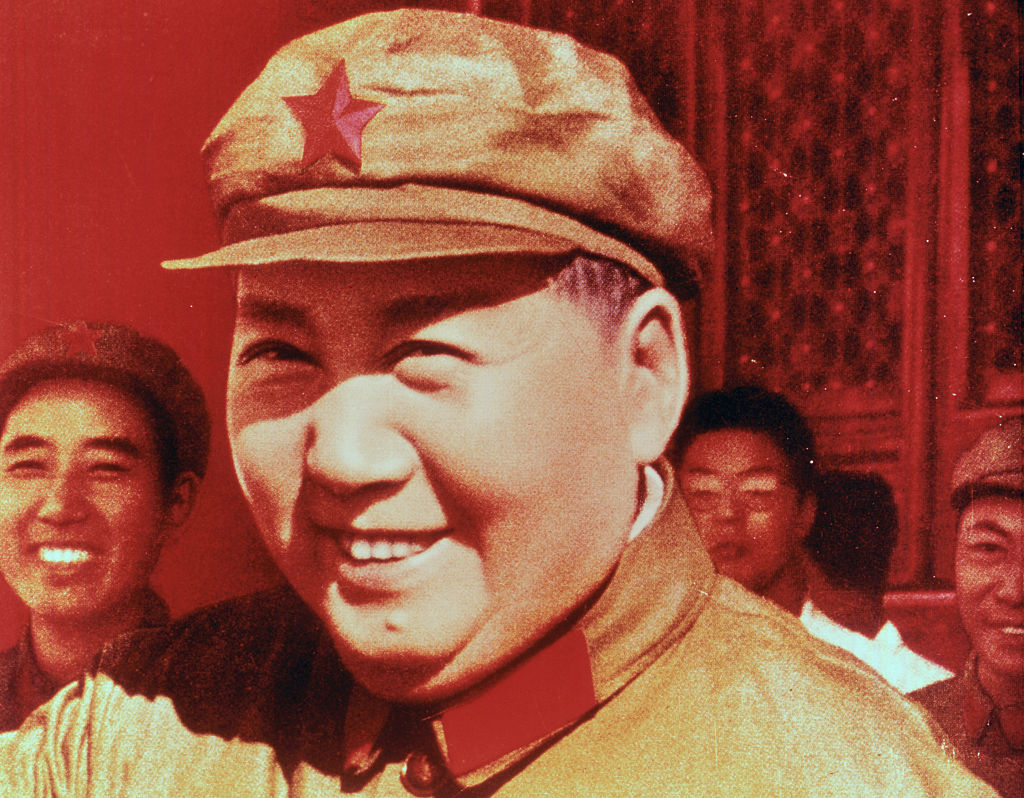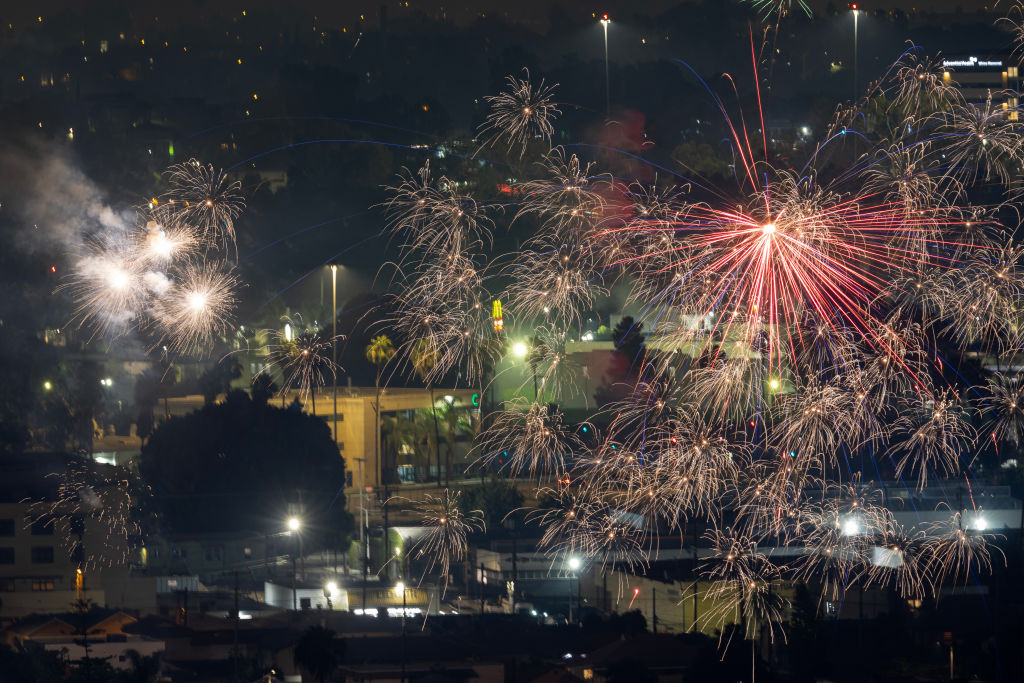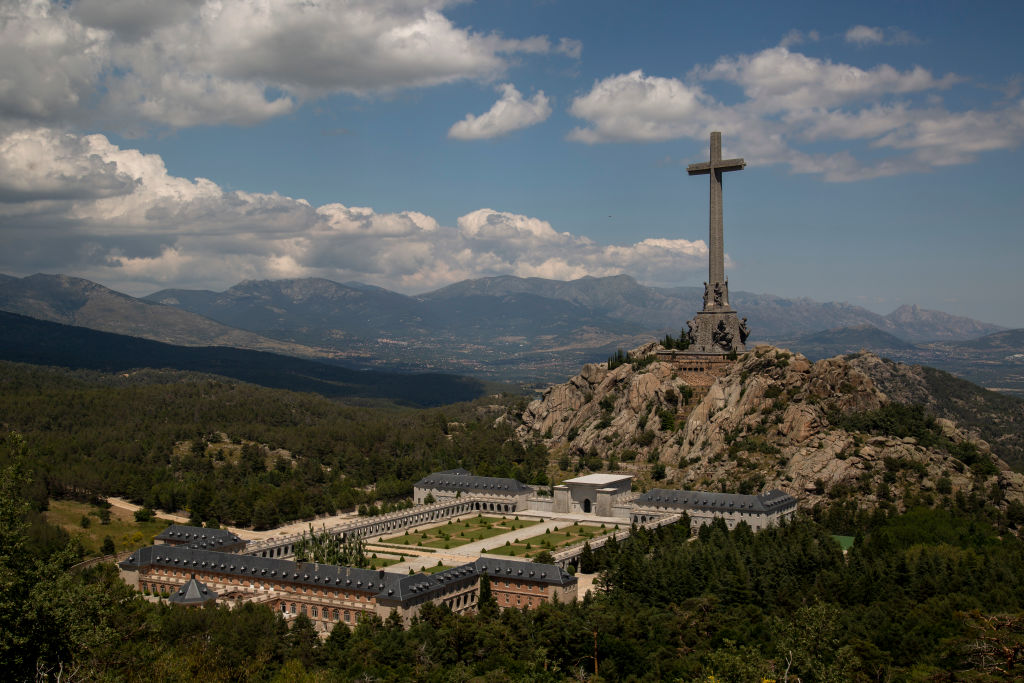Is the Islamist massacre of Indian tourists in Kashmir a prelude to major hostilities between Pakistan and India? India has suspended the treaty governing the Indus water network, which Pakistan has described as an act of war, retaliating by closing its airspace to Indian airliners. Obviously, no sane or civilised person wants this crisis to turn into a war, but do those terms apply in any sense to the upper ranks of the Chinese Communist party? India ss no doubt preening itself on having essentially stolen the contract for Apple’s phone-building for the US market from China. The latter, having rather generously given the world Covid, has also created a series of strangleholds over the both the supply chains that feed the western economies and the “rare earths” that are essential to modern technology. Its communist masters would probably not shed too many tears if yet another war broke out between Pakistan and India – and what better prize or cause than Kashmir? It was once a legendary paradise, celebrated across the British Empire and beyond with the fake-Indian lyrics of Violet Nicholson’s Kashmiri love lyrics, embodied in Pale Hands I loved beside the Shalimar.
India is probably the most complex polity that has ever existed, and outsiders who claim to understand it have been gravely misinformed. Its constitution is 142,042 words long, covering 245 pages in its original English form. I have no idea how many words or pages it takes up in any of India’s 22 scheduled languages in five mutually incomprehensible scripts, some of which are alphabetical and others are syllabic. By contrast, the US constitution is under 8,000 words and covers just 24 pages. Nonetheless, both societies are functioning democracies. Whereas Pakistan more resembles a snake-infested hole in the ground governed by the mafia and which – quite bizarrely – also has the nuclear bomb. This moral disproportion is roughly the equivalent of a criminal gang in the landbound Central African Republic having nuclear submarines.
In less than eighty years, Pakistan has got through three constitutions, while functioning in a permanent condition of recidivist Balkanism. It hanged one former prime minister who was later succeeded by his daughter. Her regime was distinguished (amongst other triumphs) by the assassination of her brother and a half dozen of his associates by the Pakistani police in what is euphemistically called “an encounter killing”, i.e., an official assassination. In other words, Brief Encounter, as rewritten for the Sopranos. She was then killed by being shot and blown up, and we don’t know which, because she was buried without a post-mortem.
Pakistan is also the family home of Khalid Sheikh Mohammed, the Kuwaiti-born mastermind of 9/11, as well of his maternal nephew, Ramzi Yousuf, a pioneer of other such atrocities. Yousuf was almost certainly trained by Pakistan’s Inter-Services Intelligence (ISI), which is a sort of cross between MI5, the CIA, the IRA and Al Qaeda. Thirty years ago last January, in a single glorious week, Yousuf planned to murder Pope John Paul II, to down some ten airliners and blow up the World Trade Centre in New York, with an intended death toll of 4,000 lives. That time it didn’t work. As we know, his uncle’s gang had more luck in 2001.
And now we have the Kashmir massacre of 26 tourists, a faint echo of the “Assembly of Islam” slaughter of 58 tourists in Luxor, Egypt, in 1997. Massacring visitors is not necessarily frowned on in certain countries. After the Luxor slaughter, the terrorists’ political wing, “Building and Development” won 13 seats in the Egyptian National Assembly, so enabling one of its politicians to become Tourism Minister in a Muslim Brotherhood government. The Egyptian army baulked at the tourism industry being run by a chap whose credentials in such matters were more homicidal than hospitable, and promptly overthrew the government.
It is of course obligatory when dealing with such matters to declare that Islam is a religion of peace, which indeed it might well be, except so many of practitioners seem bizarrely determined to prove otherwise. Of the 70 or so countries in the world that are majority Muslim, only two could lay claim to the term “democracy”, though not perhaps as Danish social democrats might mean it. The others can be termed at best as “benign autocracies”, as in Egypt, whose Muslim leader ardently identifies with the Coptic minority, or the opposite, which takes us back to dear old Pakistan, and pale hands I loved beside the Shalimar.
Was ISI involved in the slaughter of all those innocent Indians in Kashmir? Since ISI has so many secret branches, with so many agendas and objectives, the answer is certainly Yes. Yet some of those branches are also dedicated to crushing Islamism, which puts ISI in the category of a long-term patient in a home for the seriously mentally deranged, which it also runs. Moreover, it has form in such matters: Indian intelligence believes that ISI was partly involved in the 2008 attack on Bombay, in which 175 people were murdered, which takes us to another dimension. Narendra Modi’s nationalist BJP government in New Delhi insists that the world now refers to Bombay as Mumbai. the former title being “colonial”. Sorry: London is derived from the Roman name for the English capital, just as Cologne is the French name for a city that the Germans call Koln, both of which derived from the Latin for Colony.
So, I have no intention of pandering to Modi’s ultranationalism, which alas is not confined to etymology, for its expresses itself in explicitly anti-Pakistan and anti-Muslim rhetoric. As Francis Pike recently reported in The Spectator, “The day after the killings, Modi, at a speech from Madhubani in the northeastern state of Bihar, switched into English to make clear his position to global media. He said, ‘I am telling the world that India will identify, track, and punish every terrorist and their backers.’ Replace here the word ‘backers’ with Pakistan.”
These words have a sinister echo of the initial rumbles from Vienna after the murder of the Archduke and his wife, in June 1914. Over the coming weeks, those rumbles took a sharper tone, as the Emperor Franz Josef gradually concluded that Serbian terrorism had finally to be dealt with, at root, once and for all in its Serbian base. He sought the backing of the Kaiser, and he got it, with consequences that we all know about. Likewise, might not India now seek a conclusion to the endless terrorism that its security forces spend fortunes protecting the Indian people from?
This is where the problems begin. And whereas India probably needs no allies, might not Sunni Pakistan seek an ally in Shia Iran in any gathering conflict? Iran would not need to deploy its own agencies, but merely its oft-used proxies, just as Pakistan does. Iran backs both the Shia Hezbollah and the Sunni Hamas, as well as the weird Houthis of Yemen, who are a sort of cross between Shia and Sunni. In short, theological differences within Islam are less important if the enemy is an infidel. This is of course how historic snowballs work, as when rival forms of Irish identity put their mortal differences aside to fight the Kaiser, to be joined by sheep-farmers from New Zealand, all of whom ended up fighting Anatolian conscripts on the Aegean shores of the Bosphorus. Such monstrous outcomes are of course immune to rational analysis, as too was the subsequent death of three of the world’s great empires, with other and even worse stuff to follow.
It is of course far too early to suggest that the appalling events in Kashmir are a prelude to such a cataclysm. They are however an integral part of a complex crisis confronting the world’s statespersons (I know, I know, but we cannot exclude the fabulously inept von der Leyen, or financial wizards such as Christine Lagarde and Kristalina Georgieva.) There are too many fissures in the world order – Iran, Gaza, Taiwan, Yemen, Ukraine, Kashmir (of course), and not least the Kremlin and White House – to be optimistic about the future.
Moreover, in one sense the Kashmir dispute has run chronologically with the post Second World War Israel/Gaza issue, but in another goes back far longer. Kashmir was once the legendary paradise within the Islamic Mughal Empire that controlled much of what is now India and which built some of the great jewels of the sub-continent, such as the Shalimar Gardens of Lahore and the Taj Mahal. Muslims around the world – who are remarkably sensitive about lost glories – feel that Kashmir was stolen from Islam by the Hindu successors of the British Empire. At times like these, an untended fissure can easily become a fracture before turning into a calamitous, anaesthesia-free battlefield amputation. Might not Peking want such an outcome for India? Oh yes, very much so. The world should now watch Kashmir with care, lest in time it comes to resemble another multi-ethnic Alpine paradise known as Sarajevo.
Kevin Myers is an Irish journalist, author and broadcaster. He has reported on the wars in Northern Ireland, where he worked throughout the 1970s, Beirut and Bosnia.





Evil in unexpected places, even among wartime allies